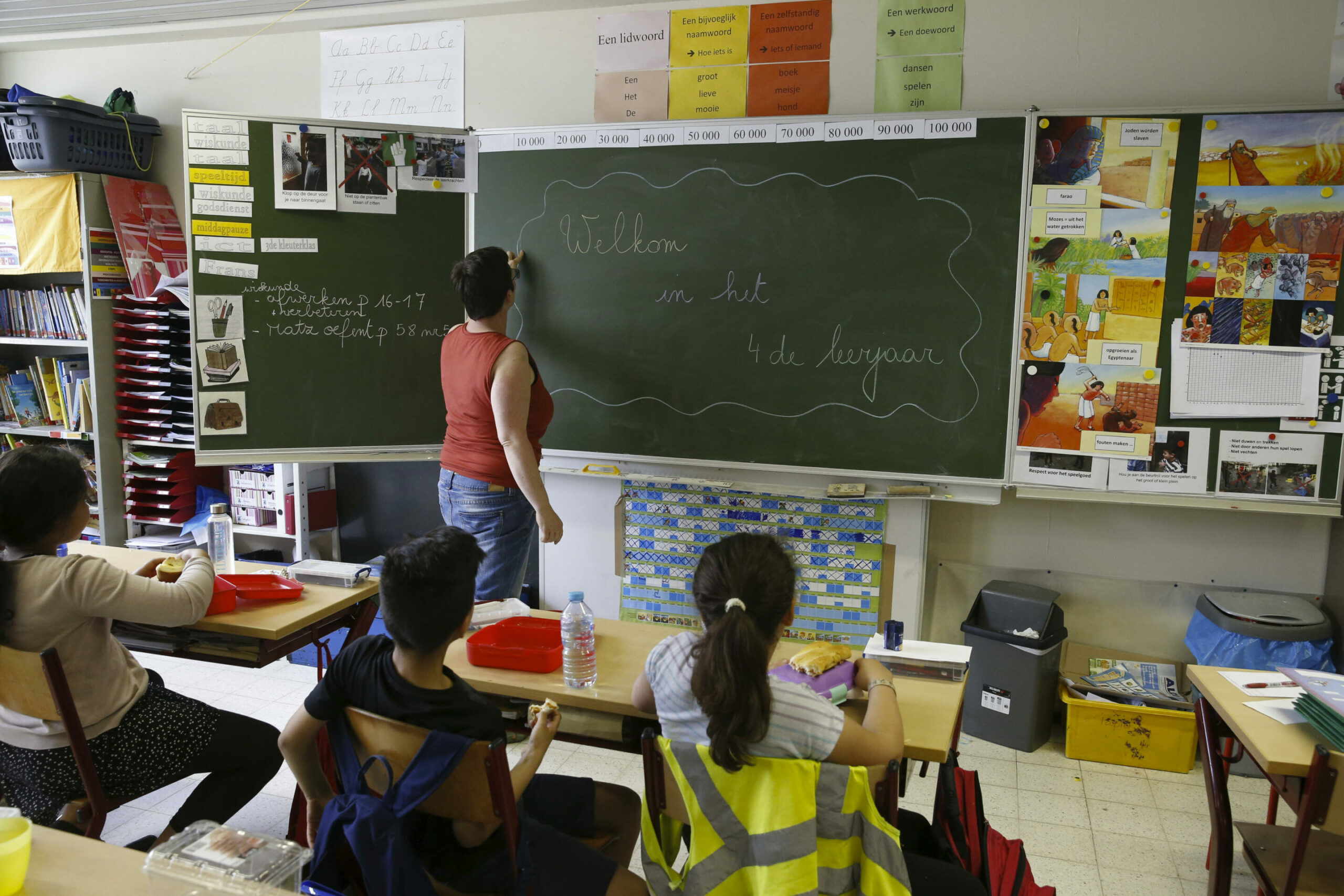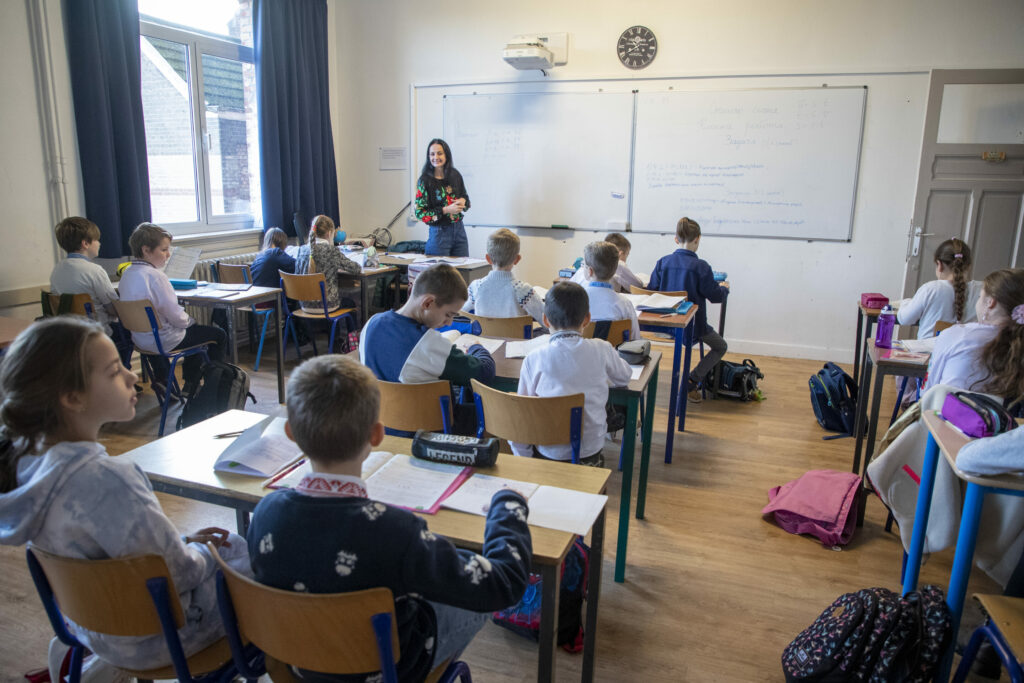The holidays are over and schools are again filling with pupils. But Belgium's education sector is stretched, faced with a teacher shortage that has grown progressively worse, despite teaching federations and unions sounding the alarm.
"The right to education is in danger," warns Marianne Coopman of the Flemish Christian Teachers' Association. She says that the start of each academic year has headteachers scrambling to plug the gaps as teaching vacancies remain unfilled and reserve staff are drafted in. "People without teaching degrees make up the staff numbers.
It's the same story in the French-language system, where new entrants into the profession have fallen to critical levels, leaving schools chronically understaffed. Already at unsustainable levels, teacher vacancies leapt up a staggering 25% at the start of the 2023 academic year, compared to the previous year.
Teachers are consequently asked to do extra hours and some classes are grouped together. In the worst cases, pupils are even asked to study the subject independently, without a teacher to respond to questions and explain concepts. Under such conditions, it is unsurprising that the sector is attracting fewer recruits – a vicious circle that has yet to be broken.

A primary school in Molenbeek, Brussels. Credit: Belga
A nationwide problem
Education in Belgium is overseen by language communities: French, Dutch and German (very small by comparison). Without a centralised authority to manage teaching throughout the country, cooperation between the French and Dutch systems is very limited. But the lack of teachers is evident across the board.
In July, the Flemish employment agency noted 3,408 teacher vacancies – an all-time high. A survey by the regional body which oversees teaching (OVSG) highlighted that 48% of schools were searching for at least one teacher, just days before a new academic year.
As a result, those who are looking for a place have plenty to choose from and can prioritise their own convenience, rather than being assigned to the areas of greatest need. Flemish newspaper De Tijd reported that some establishments are even competing for the few available applicants, enticing new staff with advantageous terms.
But efforts to build a new cohort of teachers have struggled to attract a younger generation to the profession. In Flanders, one in three teachers who started last year won't return to classes this year. In an attempt to recruit from other fields, the outgoing Flemish Education Minister Ben Weyts brought in rules to lower the barriers to entering the teaching profession. Among these was the possibility to carry seniority from the private sector into a teaching job. Introduced in 2022, Weyts admitted that this was "an extra instrument for schools to recruit people" rather than a "miracle cure".
In the francophone system, recently qualified teachers often find themselves moved between classes and schools, assigned to interim placements for indeterminate durations. Valérie Glatigny, the new Education Minister in the French Language Community (FWB), has likened this unsettling arrangement to a "sword of Damocles" that prevents young teachers from developing the long-term relationships with pupils that are key to learning outcomes.

A national demonstration to demand more resources for teachers, 23 April 2024 in Brussels. Credit: Belga
What can be done?
"The teacher shortage is the number one problem. It is the root of all other issues," Koen Pelleriaux, head of the Flemish Community's education network (GO!), confirms to The Brussels Times. He acknowledges the slipping standards, highlighted in the most recent OECD assessment (PISA).
Pelleriaux believes that teacher training should improve, with specific teaching degrees for educators. Specialised training would also make new recruits more invested in the job, hopefully reducing the "exodus" of teachers who quit after just a few years. "And it isn't just about teacher training in the general sense, we need to make sure that they are fit for their subject," Pelleriaux stresses, giving the example of maths classes being taught by a chemistry teacher – a situation many schools will be familiar with.
Likewise in the French system, there is a lack of expertise. One in five primary schools has teachers who don't hold a Bachelor's degree in elementary teaching. Glatigny has already proposed a four-year teaching degree, with larger salaries for staff who are more qualified. The better trained the teachers, the better the level of education they can provide.
Glatigny has given assurances that reforms will be carried out in concert with teacher federations and unions, and stresses that the objective will not be to make savings. But with Belgium's next Federal Government under intense pressure to rein in its public debt, language communities will inevitably face budgetary constraints.

